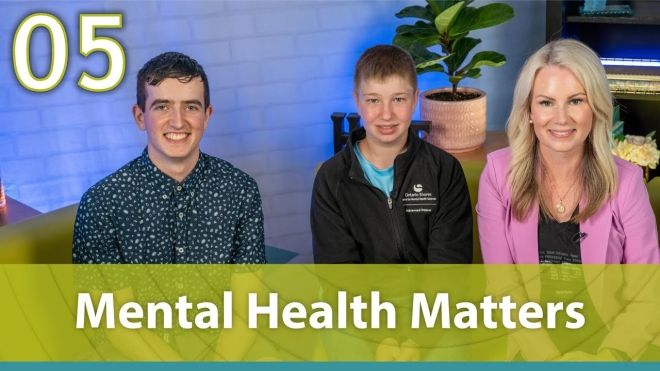
Having empathy for teenagers can be really hard sometimes.
During my mental health training and education, I get questions from frustrated parents constantly about how to help with their teenager’s mental health. Now I can only empathize with all the parents out there unsure of what to do or say to make things better for their children.
I have to say kudos to our Prime Minister for focusing one of his public addresses to children dealing with COVID-19. There plenty of articles on how to talk to younger children about our current state of the world, but much less as it relates to teenagers. So I wanted to give three tips on how to talk with your teenagers during this crisis.
So here we go:
- Have empathy and give space for sadness/anger/anxiety. If we don’t have empathy for what they are going through then nothing of what we say will help. Often adults view teenage problems as minor in the grand scheme of life and so we say things to them like “don’t worry everything will go back to normal soon, you’ll see”. Here we think we are being helpful by trying to reduce their worry, but we are actually being dismissive. To adults, problems right now are based on survival, paying the bills, getting food, staying inside so others don’t get sick. However, to teenagers, bigger problems are about their social lives. Right now teenagers are missing out on really big rights of passage like proms, graduation, spring break, competitions, college tours; things they’ve worked towards or have looked really forward to. They’re also missing out on everyday social interactions with friends, like hallway flirtations, having laughing fits, complaining about homework etc. Rather than being dismissive - have empathy. Say things like “I really hate that you’re losing all these things right now. It’s ok to feel angry, sad or anxious. You will get through this but you’re right it doesn’t make it any less miserable now”.
- Expect to have more battles about their social life. Everyone is responding to social distancing on a spectrum. Some people are a little looser than others and teenagers will likely be saying things such as “Well my friends’ parents are letting them go out!”. Simply respond with something along the lines of “I know that other parents are responding differently, but we are not supporting anything that goes against expert guidelines and recommendations. If you can give me a suggestion that adheres to these guidelines then we can consider it together”. Also freely give them permission to blame you when having to turn down plans.
- Give them responsibility in solving problems. Instead of giving them a list of daily tasks, ask them if they can show you what they have in mind to stay busy. Teenagers can be super creative, especially using online resources, which could not just help them but everyone in the family. If you have a regularly grumpy teenager, ask them how they would like to balance their rightful feelings of being upset with the expectation that they not make everyone else in the house miserable. Let them come up with their own plan, they’ll be more likely to adhere to it. And if they want to do something you don’t agree with (such as bleaching their hair at home), unless it’s directly harming themselves or someone else, let them make their own mistakes so they learn how to problem solve it without your help.
Teenagers can be wonderful partners in this and if given the proper tools could help out a lot. If you have any specific questions about what to say or how to address teenagers during this time, please comment or email me and I’ll be happy to try and do my best in addressing these tough conversations.
EDITOR’S NOTE: Christine Fuda is the Mental Health First Aid Coordinator at Ontario Shores. During the pandemic, she will be blogging regularly around the impact of COVID-19 from a mental health perspective. Send your suggestions for topics to @email.



